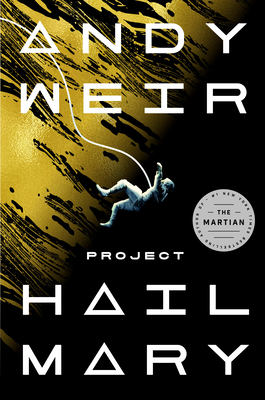A Thought Experiment for Authors and Readers

Let’s take a moment to imagine the impossible.
It’s the middle of the night, and your Kindle blinks out. Amazon’s servers go silent. No warning. No explanation. Just… gone.
No Kindle Unlimited.
No buy buttons.
No dashboards.
No algorithms.
For many authors and readers, it would be a complete extinction-level event.
1. Thousands of Authors, All Exclusive, Suddenly Cut Off
Here’s the kicker: any author in Kindle Unlimited is exclusive to Amazon. That’s part of the deal. KU doesn’t allow you to sell those books anywhere else—not even your own website. And Amazon enforces that exclusivity with ruthless efficiency.
So if Amazon collapses tomorrow, every single one of those KU authors would be instantly locked out of their income stream. No backups. No alternate sales channels. No existing relationships with other retailers.
It’s a career-ending scenario for anyone who built their entire livelihood on one platform.
And yet, even just last week, I came across authors proudly proclaiming, “I’m in KU because that’s where the money is.”
Is it? Sure. For now.
But as science fiction writers, we know that “for now” is the most fragile timeframe there is.
2. What Happens to the Readers?
Here’s where the collapse gets really interesting.
Kindle Unlimited didn’t just shape authors—it shaped reader behavior.
The KU reader expects rapid consumption. Fast reads. Familiar structures. The comfort of genre tropes, tightly adhered to.
Same-but-different is the dominant aesthetic. Because KU rewards quantity and conformity. It was designed to.
Outside of KU, the books are… different. Less engineered. Less filtered through a genre formula. And often, more creatively ambitious.
So if Amazon went down, would readers re-learn how to browse? How to take chances on unknown names? How to enjoy storytelling that doesn’t fit a precise mold?
Or—more provocatively—would former KU authors have to re-learn how to write for this new world?
And what of the content mills? The AI-assisted “authorpreneurs” producing KU fodder at speed? Would their output survive in a marketplace that suddenly values uniqueness and unpredictability?
3. Rebuilding Would Take Years
I’ve done this.
I left KU because my books didn’t fit. Not even my space opera—despite being in one of the most KU-saturated genres—felt at home there.
I publish wide. Aggressively wide. My books are available on every major platform. I sell directly from my own website. I’ve sold at craft fairs, local markets, even face-to-face with readers who’ve never heard of KU.
The prevailing wisdom is: “All space opera readers are on KU. That’s where the market is.”
And yet… here I am, building a reader base that lives outside the KU ecosystem. It wasn’t fast. It wasn’t easy. It took two years after leaving KU for my sales on other platforms to find momentum.
But now, I’m not dependent on a single platform or algorithm. My income is diversified. My readership is loyal. My stories are free to be exactly what they are.
4. The Long-Term Fallout: A Creative Renaissance?
If KU vanished overnight, the short-term chaos would be intense.
But long-term?
It might just spark a creative renaissance.
Authors would have to slow down and think deeply about their stories. They’d have to learn how to build lasting relationships with readers—not just through automated targeting, but through actual connection.
We might see the return of risk-taking. Of genre-bending. Of stories that don’t always fit the mold.
It would be messier, yes. But it might also be more human. And ultimately, more rewarding.
And that’s a future I wouldn’t mind writing toward.
5. What Do You Think?
If Amazon disappeared tomorrow, what would you do—as a reader or a writer?
If you’re a reader who buys exclusively from Amazon, maybe it’s just because it’s easy. Comfortable. Familiar. No judgment here—Amazon made the process seamless on purpose.
But if you love stories—really love them—then maybe, just maybe, it’s worth thinking about what happens if that convenience vanishes. Or even if it just stops working for you.
No pressure. But you might want to start dipping your toes into other waters.
Try another retailer. Kobo. Apple. Google. Smashwords. There’s a whole ocean of books out there that don’t show up on Amazon’s radar.
Or better yet—buy direct from authors.
When you do that, everybody wins.
- The author gets to keep most of the money.
- You get a great story—sometimes even a better deal.
- And you start something that algorithms can’t replicate: a relationship.
I’ve reached out to authors before and asked about bundles—“Hey, I already own three of these books, but I want the rest. Can we work something out?”
You know what? We did.
I got a bundle deal. I got more stories I loved. And I made a connection.
Those authors? I’m loyal to them now. Because I know them. And they know me.
You can’t get that from a 1-Click button.
So yes—anything is possible when you step out of the Amazon jungle into the wider world.
Now it’s your turn:
Have you thought about what would happen if KU vanished?
Do you buy wide? Sell wide? Or are you still all-in on Amazon—for better or worse?
Drop a comment below and share your take. Writers, readers, lurkers—you’re all welcome here.
Let’s talk about the future.

Cameron Cooper
SRP Author
Check Cam’s books here on Stories Rule Press.




I still have my fingers in more than one pie. But that is an oversimplification. I do still buy books from Amazon. Maybe three a year. I keep an eye on one author there who is exclusive to Amazon, because I really enjoy some of her series. Enough so that I’m willing to jump the stile and go over to the dark side those three times a year to pick up her books. Anything that’s published at Stories Rule Press? I buy those at their store. Other than that, I’m as loyal as a Labrador to Kobo. For any of those who might read this post, remember this: You Can’t Beat Kobo Plus. Any new author I want to try? Easy as clicking a button and pushing the “Sync now” button on my Clara. I learned about Kobo right here at Stories Rule Press and, after a bit of thinking, I took the plunge. Yes, you have to get a new e-reader if, like me, you prefer that. The upside for me? I like my Kobo e-reader a lot better than I liked my Kindle. A LOT better. Nothing is perfect, of course, but I’m much happier with my current setup. If you don’t want to use an e-reader, no problem; you can read on your other devices with Kobo.
Another major point that was made — and in my view a very important one — is that the churn-it-out-fast, follow-the-formula, keep-doing-the-same-thing process truly does permeate the Kindle Unlimited catalog. Frankly, it’s boring. I read a lot. (And I do mean A LOT; often a book a day. I blame the physical therapy exercises that are so mind-numbingly boring that I read my way through them.) It’s a little mind-boggling to get partway through a book, become positive that you have read this book before (I’m rubbish with titles, so this happens) only to find that, no, this is the NEXT book in the series. It’s the first book all over again, except this time they are wearing their Halloween costumes, including the masks. And a five-book series in which every single protagonist has exactly the same problem to work through? It’s a big letdown. HUGE. I’ll take more creative over retreads any day of the week, and twice on Sunday. (I have more time to read on Sundays.)
Branch out! You’ll be glad you did.
You are our favourite kind of reader, Marilyn: Unafraid to try new things.
Thank you for your comments!